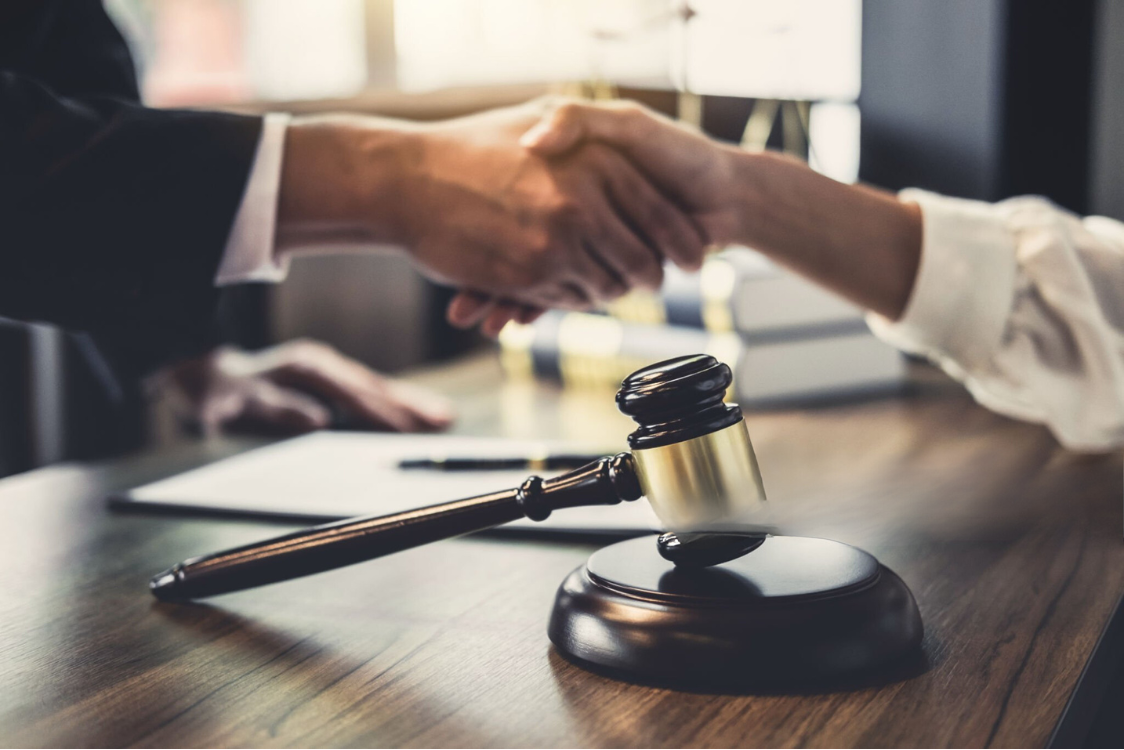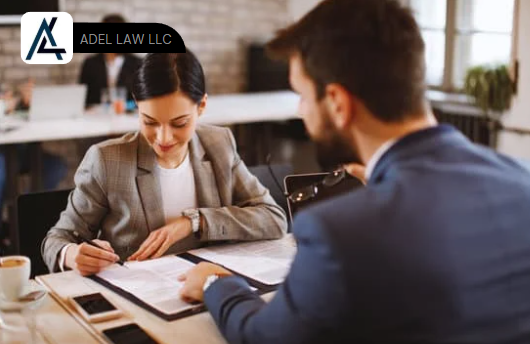What is conveyancing?
Conveyancing is the legal process that ensures the transfer of property ownership from one person to another is handled smoothly and securely. Whether you’re buying your first home or selling an investment property, conveyancing services are essential to navigate the paperwork, checks, and coordination needed to make the transaction legally binding.
The Conveyancing Process
Understanding the conveyance process can help you feel more at ease during your property transaction. Here’s a breakdown of what you can expect:
1. Offer and Acceptance: After your offer on a property is accepted, the real journey begins.
2. Contract Preparation: Your conveyancing lawyer will prepare the contract of sale, incorporating all the necessary terms and conditions to protect your interests.
3. Searches and Inquiries: Various legal checks are conducted on the property to uncover any potential issues or liabilities.
4. Exchange of Contracts: Both parties sign the contract, and a deposit is paid, making the agreement legally binding.
5. Completion: This is the final stage where the remaining payments are made and ownership is officially transferred.
Each step in the conveyance process is designed to ensure that you’re fully informed and legally protected throughout your property transaction.
Residential Conveyancing
If you’re buying or selling a home, residential conveyancing covers all the legal aspects of the transaction. This type of property conveyancing involves specific checks, such as ensuring the property has the necessary permits and is free from encumbrances. Experienced conveyancing lawyers guide you through each stage, ensuring your interests are safeguarded and that the process runs smoothly.
Commercial Conveyancing
For those dealing with commercial properties, commercial conveyancing involves the transfer of ownership for offices, shops, or industrial units. This type of conveyancing is more complex than residential conveyancing due to additional regulations and considerations like lease agreements, zoning laws, and potential commercial use restrictions. Engaging conveyancing lawyers who specialize in commercial properties is crucial to navigating these complexities efficiently.
Choosing the Right Conveyancing Lawyer
Selecting the right conveyancing lawyer is a critical step in ensuring a smooth transaction. Look for someone with expertise in property conveyancing and a proven track record. Your lawyer should be able to explain the process clearly, keep you updated regularly, and handle all legal documentation efficiently. A skilled lawyer will make your conveyancing experience as stress-free as possible.
Understanding Conveyancing Fees
Conveyancing fees can vary significantly depending on the complexity of your transaction and the experience of your solicitor. These fees typically cover legal searches, documentation, and the lawyer’s time. It’s important to get a clear breakdown of “conveyancing fees” upfront so you understand what you’re paying for. While it might be tempting to choose the cheapest option, remember that quality and expertise are crucial when it comes to legal matters.
Your Conveyancing Checklist
Staying organized is key to a successful property transaction. Here’s a “conveyancing checklist” to help you stay on track:
1. Choose a conveyancing lawyer: Start by selecting a reputable lawyer or firm with experience in conveyancing.
2. Budget for conveyancing fees: Understand the costs involved and set aside the necessary funds.
3. Prepare necessary documents: Gather all required documents, such as identification, property deeds, and mortgage details.
4. Understand the timeline: Familiarize yourself with the key stages of the conveyancing process and the expected duration of each step.
5. Stay informed: Maintain regular contact with your lawyer and don’t hesitate to ask questions.
6. Plan for completion: Ensure you have everything ready for the final transfer of ownership.
Following this “conveyancing checklist” helps ensure you don’t miss any critical steps and that the process goes as smoothly as possible.
Common Questions About Conveyancing
What does a conveyancing lawyer do?
A conveyancing lawyer handles all the legal aspects of buying or selling a property. This includes preparing and reviewing contracts, conducting property searches, ensuring all legal requirements are met, and facilitating the transfer of ownership.
How long does the conveyancing process take?
The conveyance process typically takes between 8 and 12 weeks, though this can vary depending on the complexity of the transaction and any issues that may arise.
Can I convey myself?
While it’s possible to do your own conveyancing, it’s generally not recommended. The process is complex, and mistakes can be costly. Hiring an experienced conveyance lawyer ensures that all legal requirements are met and that your interests are protected.
What are conveyancing searches?
Conveyancing searches are legal checks conducted on the property to uncover any potential issues or liabilities. These may include local authority searches, environmental searches, and drainage and water searches.
Why do I need a conveyancing lawyer for a straightforward property sale?
Even seemingly straightforward property transactions can involve complex legal issues. A conveyancing lawyer ensures that all legal aspects are handled correctly, protecting you from potential problems down the line.
The Importance of Conveyancing in Property Transactions
Engaging in property conveyancing is crucial to ensuring that the transfer of ownership is legal and binding. This legal process involves various steps and checks to protect both the buyer and the seller. For buyers, conveyance services provide peace of mind that the property is free from legal issues, while for sellers, they ensure that the transfer is handled correctly and efficiently.
Residential vs. Commercial Conveyancing
While both residential conveyancing and commercial conveyancing involve the transfer of property ownership, they differ significantly in terms of complexity and regulations. Residential conveyancing typically involves family homes and investment properties, with checks focused on permits, encumbrances, and ensuring the property is fit for habitation.
On the other hand, commercial conveyancing deals with properties used for business purposes, such as offices, shops, and industrial units. This type of conveyancing involves additional considerations like lease agreements, zoning laws, and potential commercial use restrictions. Engaging experienced conveyancing lawyers who specialize in commercial properties is essential to navigate these complexities smoothly.
Preparing for the Conveyancing Process
Preparation is key to a successful conveyancing experience. Here are some tips to help you get ready:
Choose a reputable conveyancing lawyer: Your lawyer will guide you through the process, so it’s important to choose someone with the right expertise.
Understand the costs involved: Get a clear breakdown of conveyancing fees upfront so you know what to expect.
Gather necessary documents: Make sure you have all required documents ready, including identification, property deeds, and mortgage details.
Stay informed: Keep in regular contact with your lawyer and don’t hesitate to ask questions.
Plan for completion: Ensure you have everything ready for the final transfer of ownership.
The Role of Conveyancing Lawyers
Conveyancing lawyers play a crucial role in ensuring a smooth property transaction. They handle all legal aspects, from preparing and reviewing contracts to conducting property searches and facilitating the transfer of ownership. Their expertise and experience are invaluable in navigating the complexities of property conveyancing.
Conveyancing Fees: What to Expect
Understanding conveyance fees is an important part of preparing for your property transaction. These fees can vary widely depending on the complexity of the transaction and the solicitor’s experience. Typically, they cover legal searches, documentation, and the lawyer’s time. It’s important to get a clear breakdown of these fees upfront so you know exactly what you’re paying for.
While it might be tempting to choose the cheapest option, remember that quality and expertise are crucial when it comes to legal matters. A skilled conveyance lawyer will ensure that all legal requirements are met and that your interests are protected, which can save you from costly mistakes down the line.
Conclusion
Engaging in conveyance is an essential part of any property transaction, whether you’re buying or selling. Understanding the conveyance process, choosing the right conveyance lawyer, and being prepared with a conveyance checklist can help ensure a smooth and successful transaction. By staying informed and organized, you can navigate the complexities of property conveyancing with confidence, knowing that you have the right support and knowledge to make informed decisions.




